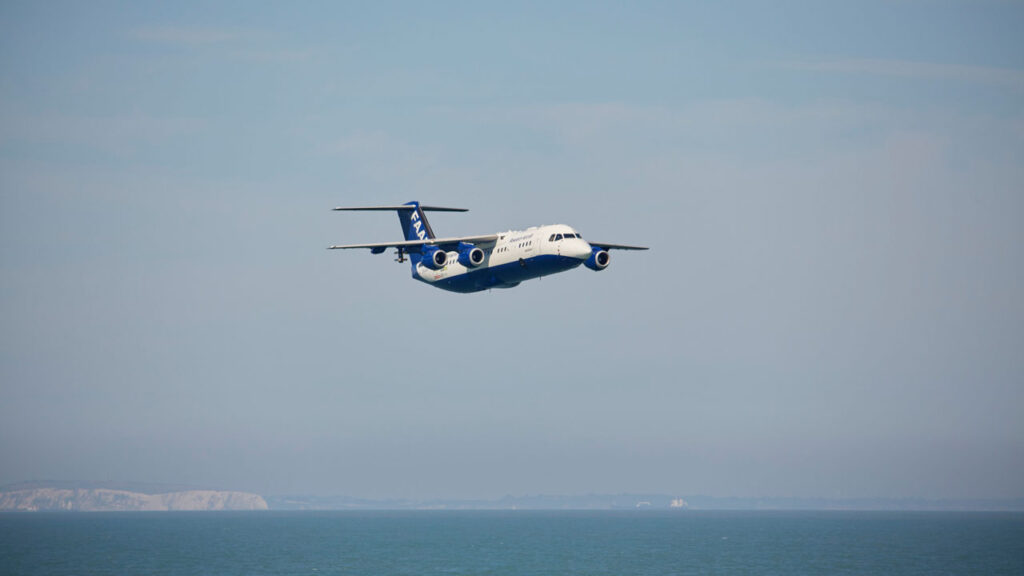
Celebrating 20 years of science flying with the FAAM Airborne Laboratory
Saturday 9 March 2024 marked the 20th anniversary of the first science flight made by our atmospheric research aircraft.
Over the last 2 decades, the FAAM Airborne Laboratory’s research aircraft – a specially adapted BAE-146 aircraft fitted with up to 4 tonnes of scientific instruments – has flown across 30 countries, 5 continents, and supported over 120 UK and international science projects.
Throughout this time, the aircraft has been managed by a unique team of scientists, engineers, flight technicians and project managers who provide a complete package of support for the environmental research community – they have made 20 years of airborne science possible.
From climate change to air pollution and weather, our research aircraft and airborne laboratory team have collected invaluable data from nearly 1400 flights that has been used in around 500 academic research papers. Capable of flying as low as 15 metres over the sea and 11 kilometres high in the atmosphere, flights can last between one and six hours, covering up to 2000 nautical miles.
In the past year, we have seen our research aircraft take to the skies to monitor methane emissions from Scottish wetlands, improve summer storm predictions in southern England, detect changes in the North Atlantic marine environment, and test the use of blended sustainable aviation fuel.
We are now strapping in for the next 20 years with an exciting upgrade to keep our research facility flying until 2040 and beyond. The Mid-Life Upgrade programme will boost the services that the FAAM Airborne Laboratory provides, modernise science systems, install cutting-edge instruments, and modify the aircraft so it is even better suited to carrying out its missions.
*The FAAM Airborne Laboratory’s research aircraft is owned by UK Research and Innovation and the Natural Environmental Research Council. It is managed through the National Centre for Atmospheric Science, and leased through the University of Leeds. The aircraft is supported, modified and upgraded by BAE Systems, operated by Airtask Group, and maintained by Avalon Aero. It is hangared in Bedfordshire, with Cranfield Airport at Cranfield University.
